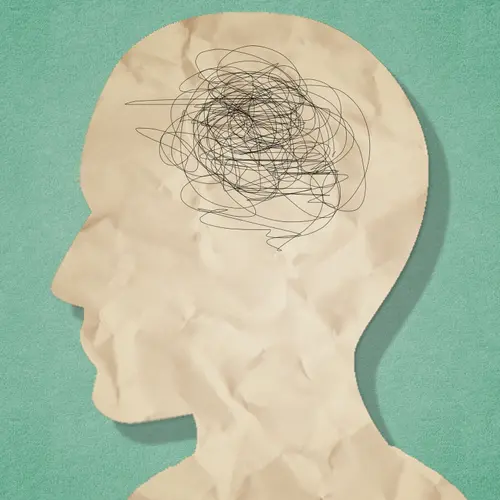Why Can’t I Focus?
Each time you buckle down to work, your mind wanders or you start scrolling through your phone. Sound familiar? Most people have trouble focusing from time to time. But if it happens often, you may wonder why you can’t stay on task.
Lots of things, like everyday habits, can affect your ability to concentrate. In some cases, a health issue may be the cause. Here’s what you need to know.
Medical Conditions That Can Affect Focus
A short attention span may signal one of the following health issues:
ADHD. It isn’t just a kid thing. In adults, the main symptoms of this mental health condition can include:
- Trouble focusing
- Impulsiveness
- Mood swings
- Poor time management
Anxiety. Worrying takes brainpower, which can get in the way of focusing. Signs of a generalized anxiety disorder can include:
- Constant anxiety
- Fear
- Indecisiveness
Depression. This mood disorder is more than just feeling sad. It also affects the parts of your brain in charge of:
- Attention
- Memory
- Decision making
Medication. Certain drugs can change the way brain chemicals work. They may mess with your memory and focus. These include drugs for:
- Sleep
- Allergies
- Incontinence (when you can’t control your bladder)
- Depression
- Muscle spasms
Thyroid problems. The hormones this gland makes are important to several body functions, including thinking. If your thyroid gland doesn’t make enough or too much, you may have trouble concentrating.
When You Should Seek Help
Talk to your doctor if you can’t focus, so much so that it’s affecting your life. For example, you may notice that you’re falling behind in school or at work.
You should also make an appointment if you also have any of these symptoms:
- Ongoing feelings of sadness, hopelessness, or guilt
- Changes in your sleep habits, such as not being able to sleep or sleeping too much
- Worry or anxiety that’s lasted for months or affects your daily life
- Feeling tired for no reason
- Dry skin, constipation, a puffy face, and/or hoarse voice
- Unintentional weight loss, insomnia, and heat intolerance
Other Things That Can Affect Focus
Thesecan also take a toll on your attention span:
Stress. Experts think the part of your brain in charge of survival takes over when you’re stressed out. The other parts of your brain, such as those that control attention and thinking, don’t get as much energy.
Hunger. Your brain needs fuel to work. When your blood sugar dips, it’s harder to focus.
Multitasking. Working on a report while answering emails and listening to a conference call might seem like a timesaver. But juggling too much at once can backfire. Our brains are wired to handle one thing at a time. Research shows constantly switching gears makes you less efficient and more likely to make mistakes.
Lack of sleep. It’s tough to pay attention when you’re tired. That’s because your brain cells recharge and recover when you’re asleep. They don’t work as well when you don’t get enough rest. Research shows that skipping even one night of sleep makes it harder to focus and block out distractions.
Eating lots of sugary or fatty foods. Sugar causes a quick rise in blood sugar, followed by an energy crash. Meanwhile, foods high in unhealthy saturated fat may trigger inflammation that affects your brain. One study found that women did worse on a test of their attention after eating a meal high in unsaturated fat.
How to Improve Focus
Make these changes to strengthen your concentration:
Time block. Have a lot on your plate? Schedule specific times for each task, such as a half-hour each morning and afternoon to check email or answer calls. This keeps you from switching back and forth between duties.
Exercise regularly. It can help you blow off steam, sleep better, and ease stress. It also lowers inflammation and encourages the growth of new brain cells. That may sharpen your thinking in the long run.
Eat well. Eat foods high in fiber, unsaturated fat, and lean protein to stave off hunger and keep your blood sugar level steady. Fill your plate with different fruits and vegetables. They serve up nutrients your brain needs to function, such as vitamins B, C, E, and magnesium.
Cut down on distractions. Try to find a quiet area when you need to focus. Remove things that often compete for your attention. You may want to turn off the television or radio, and switch off your phone notifications for a period of time.
Short Attention Span
Your attention span is how long you can focus on something or spend on a task before you need a break or get distracted. While everyone gets distracted from time to time, those with a short attention span frequently have trouble focusing on tasks and conversations.
Signs of a Short Attention Span
The main sign of a short attention span is having a hard time focusing on tasks. This can be frustrating since it may seem to others that you don’t care about the task. But having trouble focusing or having a mind that wanders is not the same as being defiant or not caring.
Signs of a short attention span also include:
- Making careless mistakes
- Trouble reading long texts
- Seeming not to listen
- Leaving tasks partially done
- A hard time managing time or keeping materials organized
- Forgetting activities or appointments

